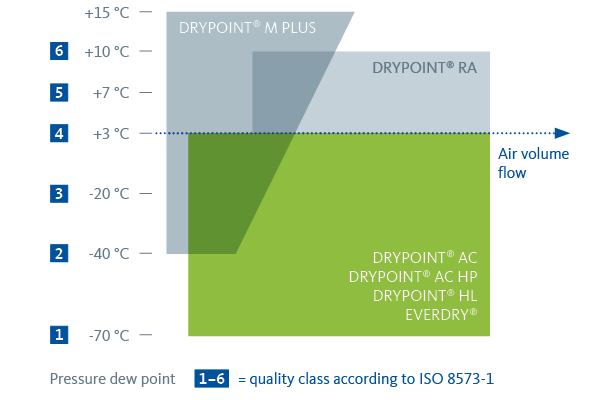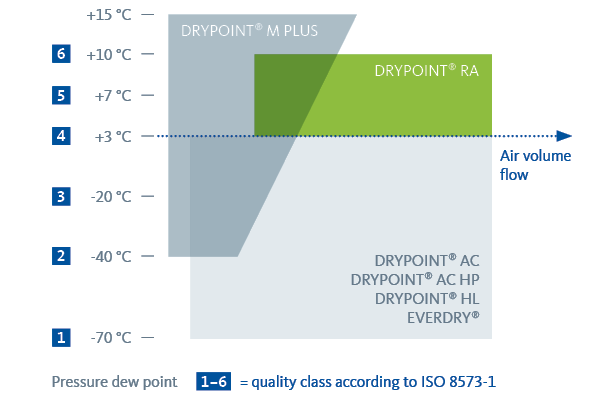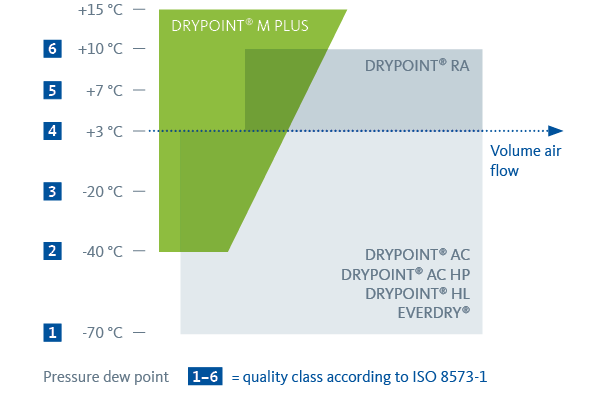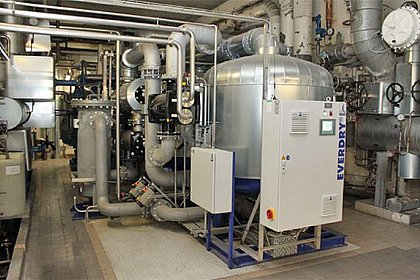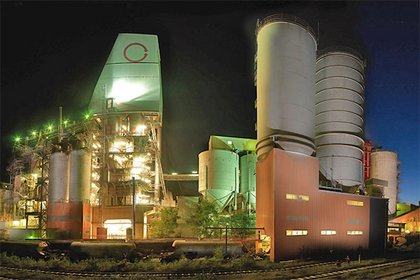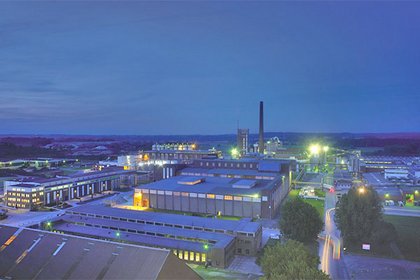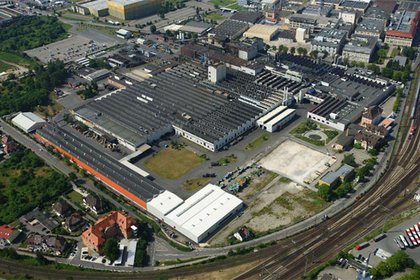Compressed air dryer: Process safety is the deciding factor
Moisture in the form of condensate in compressed air systems creates a permanent danger for operation processes. Our DRYPOINT and EVERDRY compressed air dryers provide you with considerably increased process safety and therefore significant advantages - and go even one step further: Due to their large energy-saving potential, you can also protect your financial resources and therefore utilise them more efficiently for your core business. An important criteria for the selection of a compressed air dryer is the desired degree of drying, the air volume flow rate and the quality class. There is therefore a differentiation between three compressed-air drying methods.
Different methods of compressed-air drying
Our comprehensive range of refrigeration, membrane and adsorption dryers optimally fulfils all requirements. We can therefore satisfy the requirements for a wide range of drying degrees and quality classes and achieve pressure dew points between +15 and -70 °C . In order to find the perfect solution for you, we also set the same high benchmarks for our consultation service as those for our products: sustainable, long-term, individual.
Adsorption dryer: For maximum flexibility
An adsorption dryer works according to the adsorption principle. The air is passed at intervals through a container filled with a desiccant. The desiccant is regenerated simultaneously in a second container. With DRYPOINT AC, we can provide refrigeration regenerating and, alternatively, heat-regenerating adsorption dryers with EVERDRY. Both series are suitable for complying with high quality requirements where very low pressure dew points must be achieved or with very high volume flow. This method for compressed-air drying can achieve pressure dew points down to -70°C.
Refrigeration dryer: the most economical drying method
Refrigeration dryers provide the most economical method for drying compressed air. Their basic principle is based on condensation via cooling. The DRYPOINT RA refrigeration dryers are equipped with a BEKOMAT condensate drain as standard and prevent costly compressed air losses. Compressed air refrigerated dryers are suitable for use in industry, craft trades and workshops. Pressure dew points are between +3 and + 10°C.
Membrane dryer: the versatile all-in-one solution
Membrane dryers execute the drying process via highly-selective membranes. The method is suitable for smaller volume flow rates and has a very wide range with the pressure dew points. No additional energy is required for the operation. They are very well suited for the laboratory sector or mobile, space-saving solutions. The range of pressure dew points ranges from -40 to + 15°C.
